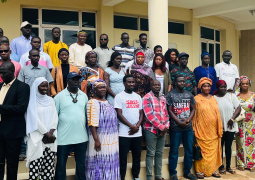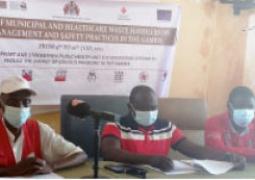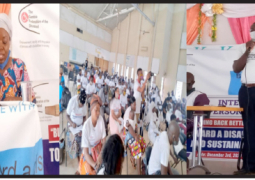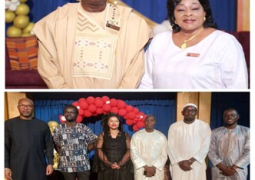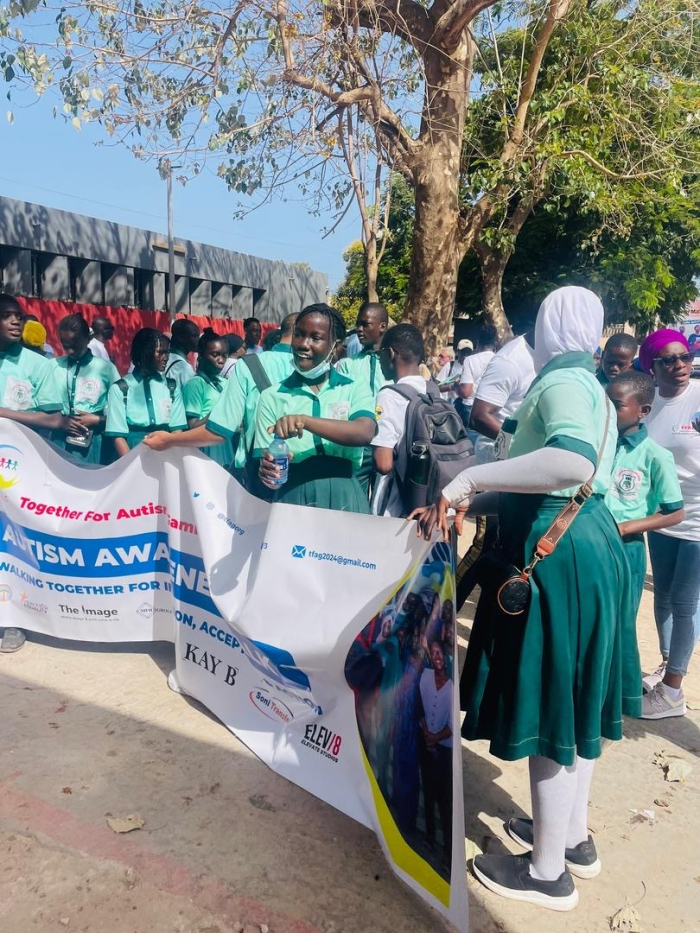
The event forms part of activities marking Autism Awareness Month.
The event held on the theme; ‘Walking for Autism Awareness,’ attracted a cross section of youths and parents with organizers using the forum to create more awareness on autism in The Gambia.
However, the event also signifies the need to encourage and enlighten Africa, most especially, The Gambia about kids with autism and the need to care for their emotions, inclusion and talents.
Addressing the gathering, Sirreh Saho, president and founder of TFAG, spoke about the role of her non-profit organization, adding that TFAG is more than just an organization, it is a movement for inclusion, a platform for awareness, and a community where no one feels alone,” she said.
Saho, whose work is inspired by personal experience and the stories of countless families across The Gambia, emphasized their resolve to work for inclusion of more communities in their advocacy.
‘We work for acceptance, not just awareness, because knowing the word autism isn’t enough. We must understand it, embrace it, and celebrate it,” she added.
She urged communities to not only speak up for inclusion but to also take meaningful steps, adding that real change doesn’t happen by chance.
‘It happens when people like you show up, speak up, and stand together.”
For his part, Dr. Ndubuisi, Associate Professor and Consultant Pediatric Neurologist at Edward Francis Small Teaching Hospital, called for greater understanding and support for autistic children.
“Autism is not a spiritual issue, but rather it is a neuro-developmental condition. Many of these children are super intelligent; they are hidden heroes,” he said.
Drawing from his experience across three continents, he urged policymakers and communities to create structures for diagnosis, care, and inclusive education.
Jennifer Senghore, founder and CEO of The Dyslexia Trust Gambia, noted that no child is stupid and that stupid means someone who is not capable of anything.
“And a person with autism are extremely talented and capable significant changes in our societies, every child is capable of something.”
Senghore made reference to how society often labels children who learn differently, reinforcing stigma rather than support.
“These children are not puzzles to be solved or problems to be fixed. They are whole. They are vibrant. They are wonderfully unique. Change the environment not the child. Let the child be, but make the provision so that they can thrive,” she said.
She further criticized that this reflects a systemic failure in ‘our educational sectors,’ particularly in accommodating children on the autism spectrum.
“Far too often, autistic children are forced to fit into systems that weren’t built for them. We expect them to learn and behave like everyone else and when they can’t, we blame them instead of the system.” she added.
“In our society, we’re quick to label like this child is spoiled,’ ‘this mother is useless. But most of the time, the mothers are the ones carrying the biggest burden. It is not the fault of the mother. It is not the fault of the child. Autism is not a weakness, it is a source of strength.” Senghore added.


